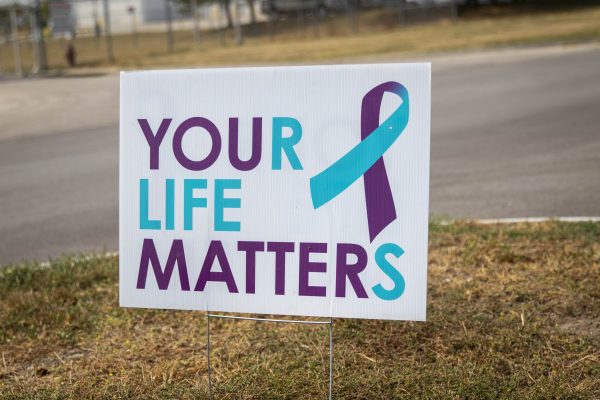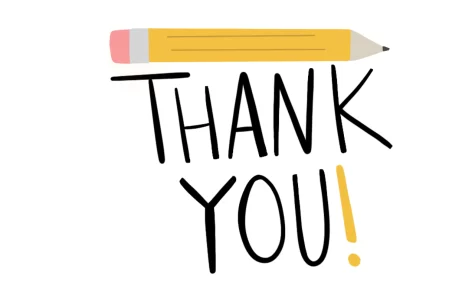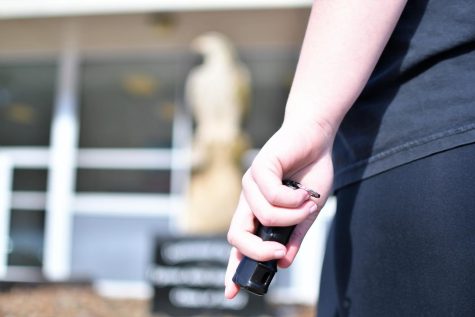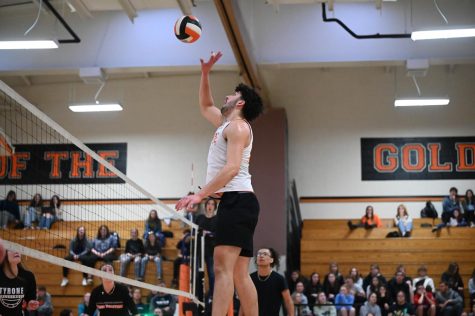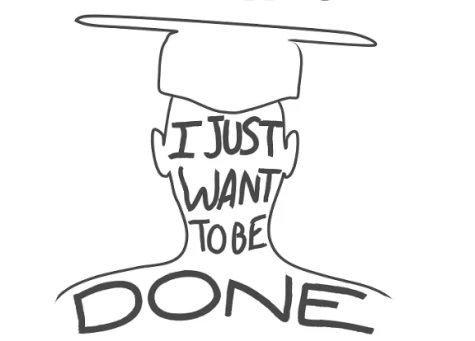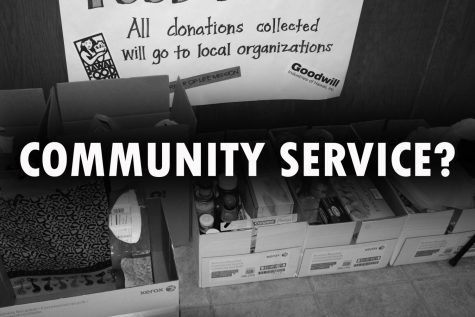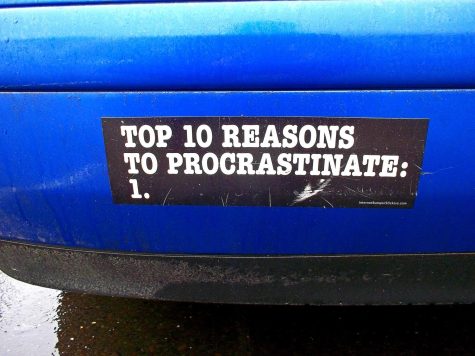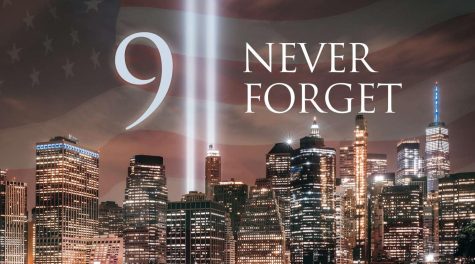Lethal Rapping
Rap music has become increasingly popular, but many also feel that it is becoming a massive problem for many parts of society.
Personally, one must consider the harm rap music brings into the mind of many individuals. The issues of rap music must be thought of as problematic for many groups in the world today.
Rap music is enormously harmful to the black community. The glorification of violence most rappers exhibit in ghetto living is glamorized, but in reality, it is anything but glamorous.
Ghetto life is so hopeless that an explosion of violence is both justified and imminent. Indeed, many rappers claim that the ghetto life is the place of power, or “where it’s at” but this is not the case because truthfully, they are glorifying poverty and violence of the streets.
“Rap music generally does glorify what ghettos are truly like. I went on a missionary trip in Baltimore; we were in the inner city rebuilding a house to give away to a poor family. While there, we went canvassing. The people living in the ghettos are not well off and do not live what we would call a comfortable or healthy life style. I went up to these people and asked if they needed prayer or if there was anything I could help them with. Some of them were poverty stricken: missing teeth, sores, dirty clothes. It was obvious a lot of them were on drugs. When rap music says how people in ghettos are driving nice cars, with lots of money, and living a desirable lifestyle, it’s all just a façade” said freshman Lily Williams
Likewise, the attitude and style provoked in many rap lyrics effect blacks in their everyday life style. Columnist John McWhorter says that, “The arm-slinging, hand-hurling gestures of rap performers have made their way into many young blacks’ casual gesticulations, becoming integral to their self-expression.”
Clearly, this problem can make potential employers wary of young blacks and can impede a young black’s ability to interact with co-workers and customers. Some may interpret that, because of rap music’s attitude and style, blacks are looked at differently.
“I think that those rappers have the choice of what they sing about. Some think that they need to sing about drugs, alcohol, and sex to get noticed. I think that those lyrics have an effect on how the black community view themselves and how people outside of that view them” said freshman Paige Umholtz.
Also, truthfully speaking, rap has come out with the most icily misogynistic music towards women that the world has ever seen. Rappers are stereotyping women and making them seem raunchy and dirty, but not all women are that way. Rap music gives women a horrible image when calling them things like b—h, slut and whore. They focus on their bodies, not their intellect or their minds. Rappers should be more mindful about how they depict women.
The lyrics below showcase how degrading Schoolly D was toward women:
Tell you now, brother, this ain’t no joke, she got me to the crib, she laid me on the bed, I f—d her from my toes to the top of my head, I finally realized the girl was a whore, Gave her ten dollars, she asked me for some more.
“Rap music makes sex seem like the new thing to do and now we have so many people that are just graduating or not even out of school yet having babies” said junior Shaye Loose.
“I think that rap music is showing kids of younger ages that listen to it, that things that are morally wrong are okay and I think that’s why a lot of younger kids are in trouble all the time because they listen to rappers say that having sex is okay, and it’s not” says freshman Paige Umholtz.
Violent rap lyrics are also encouraging violent behavior among civilians. In a recent newspaper article entitled, “Was Chicago Rapper Inspiration for ‘Bored’ Killing in Oklahoma?” Columnist Mark Guarino states that Oklahoma teenager James Edwards is accused of the random shooting of Christopher Lane, an Australian baseball player, because of Chicago rapper Chief Keef’s violent rap lyrics.
It is becoming apparent that Edwards was an active enthusiast of the Chicago rapper who police say is linked to gang violence in the city. Because of the “random” killing, police dug deeper and found statements made in a Twitter feed attributed to his name that suggested he was planning to kill someone. Shockingly, several of those statements are lyrics from Chicago rap star Chief Keef, whose real name is Keith Cozart.
Is Keith Cozart and his violent lyrics really the big problem? In fact, police say Cozart is a member of a faction of the Black Disciples gang in Chicago and that they have tried to link to several high-profile killings on the city’s South Side.
Cozart is also the biggest star of “drill music,” a slang term for retaliation and a new style of rap music, which is darker and infused with voyeuristic tales invoking violence. It features artists who were largely discovered, and subsequently promoted, via social media.
Obviously, what rappers write in their songs have a huge effect on the minds of many teens and has contributed to aggression among thousands of individuals. Furthermore, some civilians are worried about the messages conveyed by rap music and so the music industry labeled CDs with a warning, though this still doesn’t help society.
Various rap music fans consider this a form of artistic censorship that has no place in our free society, but if rap music is going to cause deaths, shootings, and violent behavior, it should be censored bitterly.
Also, in experiments on over five-hundred college students, subjects were found to experience an increase in aggressive thoughts after listening to songs with violent lyrics. Some words used in the study as “clearly aggressive” were blood, choke, butcher, fight, gun, hatchet, hurt, kill, wound and knife (Morrison). Similarly, anyone can become aggressive or have hostile thoughts by listening to such lyrics that rap music promotes to society.
Most of the criticism aimed at rap music comes from the fact that the content of the lyrics, the attitudes, values, and behaviors portrayed influence how young listeners think and act. Not surprisingly, it is a concern that emphasizes the negatives, such as violence, suicide, Satanism, and substance abuse.
“I personally think that rap music is very distasteful. it is very uncommon to find a rap song that doesn’t glamourize the heavy usage of drugs and alcohol. Younger generations look up to these rappers and with the messages that are portrayed, the thought of these kids taking all of the messages of wrongful morals is very unfortunate” said junior Davina Lee.
Sam Brownback, Governor of Kansas, says that, “Producing, promoting and peddling violent music to children is not merely scandalous, it is dangerous. Sending such messages of hate and violence to children and younger teens sends many signals that violence is widespread and “normal” and that there is glamour in lawlessness.”
Do we carefully look at the impact that popular culture has on our lives? Rap music has numerous effects on popular culture because it harms the black community and violent rap lyrics can encourage violent behavior among civilians. These forms of media will forever alter the landscape of popular culture.

My name's Carly Crofcheck. I've been in the Tyrone Eagle Eye for four years and I'm a Senior at TAHS. Last year I was the Editor in Chief, this year...




